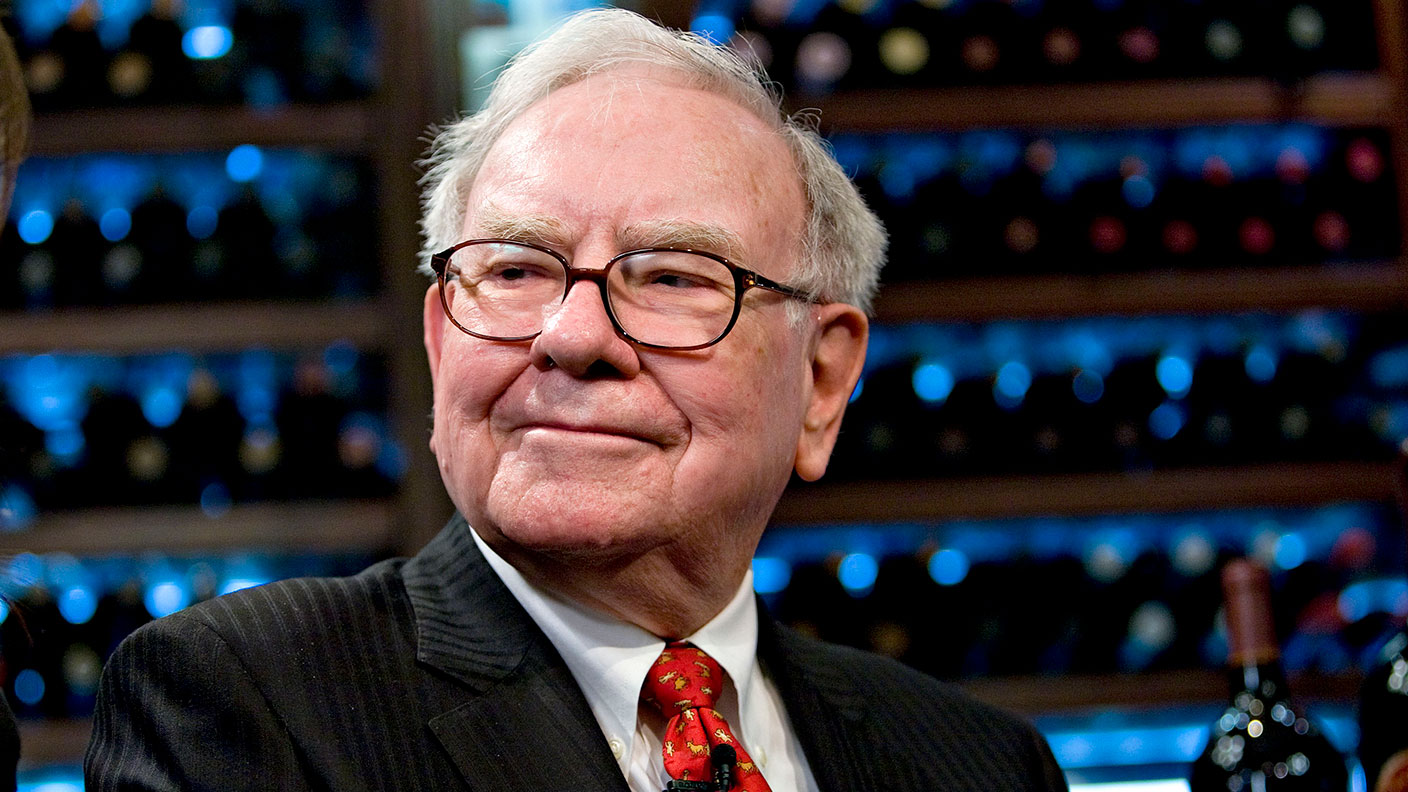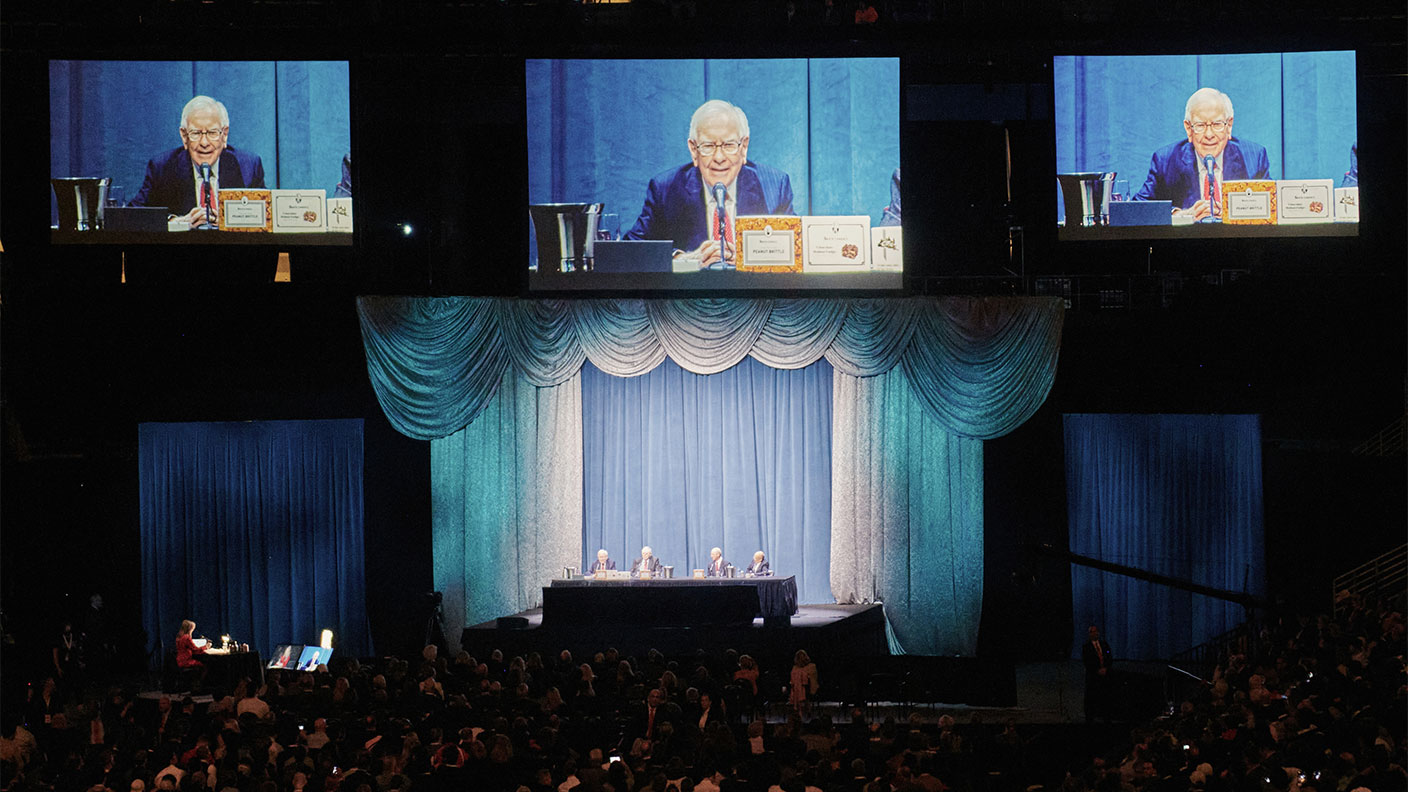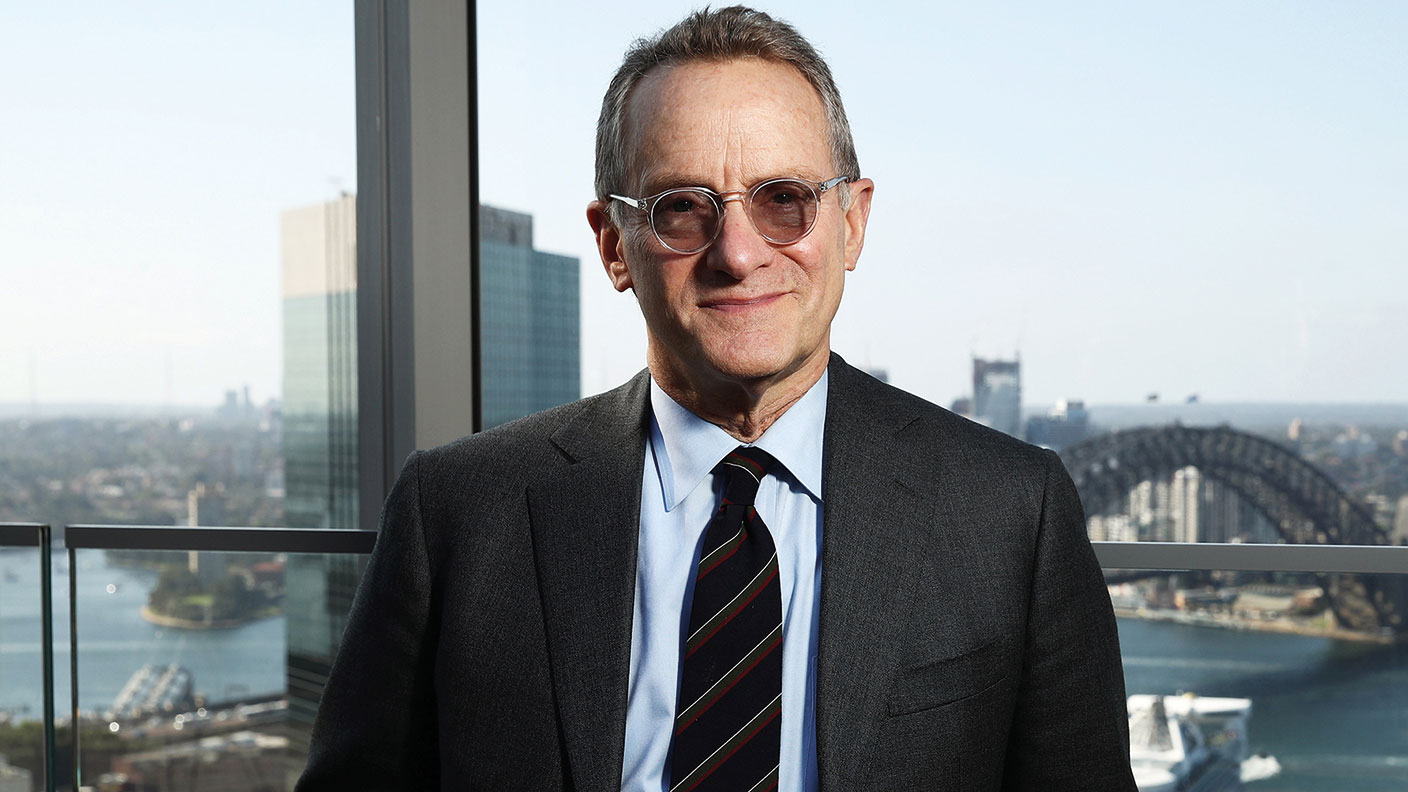Stephen Jarislowsky - the Canadian Warren Buffett
Fund manager Stephen Jarislowsky is something of a conservative investor. So much so that the octogenarian is known in the markets as a Canadian Warren Buffett.
Get the latest financial news, insights and expert analysis from our award-winning MoneyWeek team, to help you understand what really matters when it comes to your finances.
You are now subscribed
Your newsletter sign-up was successful
Want to add more newsletters?

Twice daily
MoneyWeek
Get the latest financial news, insights and expert analysis from our award-winning MoneyWeek team, to help you understand what really matters when it comes to your finances.

Four times a week
Look After My Bills
Sign up to our free money-saving newsletter, filled with the latest news and expert advice to help you find the best tips and deals for managing your bills. Start saving today!
Fund manager Stephen Jarislowsky is something of a conservative investor. So much so that the octogenarian is known in the markets as a Canadian Warren Buffett.
Still, while his strategy may look unadventurous he's still got shares tucked away that he bought as a student in the 1940s few can quibble with his results: he has more than C$52bn (£25bn) under his management, is comfortably a billionaire in his own right and, within Canada, is a legend.
His book
MoneyWeek
Subscribe to MoneyWeek today and get your first six magazine issues absolutely FREE

Sign up to Money Morning
Don't miss the latest investment and personal finances news, market analysis, plus money-saving tips with our free twice-daily newsletter
Don't miss the latest investment and personal finances news, market analysis, plus money-saving tips with our free twice-daily newsletter
a mish-mash of autobiography, advice, and some frankly eccentric views on international policy recently knocked The Da Vinci Code off the bestseller lists.
A spook in Japan
Born in Berlin in 1925, the son of an industrialist, he moved to France as a teenager when his mother remarried a French bureaucrat, and subsequently to America. Being uprooted every few years led to "a sense of self-reliance", he told the Canadian Financial Post.
After taking an engineering degree at Cornell, he joined the US army in 1944 and was eventually recruited to its intelligence unit in Japan. Here he had "his first brush with governance": Jarislowsky's unit caught wind of a rumour that General Douglas MacArthur's wife was influencing the choice of contractors in post-war reconstruction. When he began asking questions, the unit was shut down, possibly influencing his subsequent decision to eschew a diplomatic career in favour of an MBA at Harvard.
"Smart as hell"
In 1949, Jarislowsky moved to Canada and after a short spell at packaging firm Alcan gave himself up to what was to be his lifelong calling, making money.
Together with partner Scott Fraser, he founded Montreal-based Jarislowsky Fraser. It didn't take long for the firm to establish itself as "a Canadian investing legend", says the National Post, with Jarislowsky soon renowned for being "aggressive and smart as hell" with his characteristic value-seeking style. That description stands today, says the Montreal Gazatte. But now it also comes with "feisty", "irascible" and "caricature of a wealthy curmudgeon".
Still, he has put these characteristics to good use. Over the years, he has emerged as Canada's one-man corporate governance lobby in the thick of any "corporate rumble" or legal battle on behalf of shareholders. He speaks up for the little guy, denouncing the "outrageous conduct" of executives whose "obscene" stock-option plans amount to little more than "legal theft".
In 1978 when Consolidated-Bathurst Inc. tried to buy out minority shareholders of subsidiary Domglas Ltd for $20 a share, Jarislowsky went to court, arguing shareholders were being short-changed. He eventually forced the price up to $36 per share. Jarislowsky and his firm owned only 5,285 shares, but the victory meant more than money. "It put a new type of precedent on the books," he says.
Playing a long game
The only real blip in a 50-year career came in the early 1990s when investors fled on false rumours that Jarislowsky was planning retirement. He wasn't. He is still going strong at 80 and hasn't lost his knack for controversy.
Having long advocated Canadian unification with the US, he has recently been vigorous in denouncing America's loose monetary policy and its foreign policy. However, he has found one comforting constant: the long-term nature of the investing game. "If my kids hang on to the portfolio, and it doubles every seven, eight years, there'll be more money than Warren Buffett has."
Stephen Jarislowsky's eight rules of investing
1. Your best bet for building wealth over the long term is to build a portfolio of high-quality large-company stocks that have great management and a track record of doubling earnings every five to seven years preferably in non-cyclical businesses.
2. Choose stocks over alternatives such as property (cyclical) and bonds (lower returns over the long haul) and be wary of alternative investments, such as gold and art.
3. Start as early as you can and select and hold these companies for the long term. Do not trade unless you have clearly made a mistake. Trading only adds dealing costs and possibly triggers a tax charge too. Be a long-term investor, not a gambler, and keep costs to a minimum.
4. Shares produce an average real return of 5% to 6% a year (after inflation). The earlier that you can start, the more miraculous will be the effects of compounding over a working life.
5. Put your plan in place and do not waver in the face of short-term market fluctuations. You do not own the market, only those companies in which you are invested.
6. Look at market bubbles as an occasional opportunity to take profits and market slumps as an opportunity to top up your holdings with cheap purchases.
7. Do not be swayed from your plan by smooth-talking financial advisers or stock brokers. Beware mutual funds (or their UK equivalent, unit trusts and Oeics) because of their high charges and often pedestrian performance.
8. Keep yourself informed on the companies in which you invest. Make a point of reading your companies' reports and accounts.
Get the latest financial news, insights and expert analysis from our award-winning MoneyWeek team, to help you understand what really matters when it comes to your finances.
Jane writes profiles for MoneyWeek and is city editor of The Week. A former British Society of Magazine Editors (BSME) editor of the year, she cut her teeth in journalism editing The Daily Telegraph’s Letters page and writing gossip for the London Evening Standard – while contributing to a kaleidoscopic range of business magazines including Personnel Today, Edge, Microscope, Computing, PC Business World, and Business & Finance.
-
 Can mining stocks deliver golden gains?
Can mining stocks deliver golden gains?With gold and silver prices having outperformed the stock markets last year, mining stocks can be an effective, if volatile, means of gaining exposure
-
 8 ways the ‘sandwich generation’ can protect wealth
8 ways the ‘sandwich generation’ can protect wealthPeople squeezed between caring for ageing parents and adult children or younger grandchildren – known as the ‘sandwich generation’ – are at risk of neglecting their own financial planning. Here’s how to protect yourself and your loved ones’ wealth.
-
 Why we need a little patience
Why we need a little patienceAdvertisement Feature In volatile markets it’s easy to get spooked and sell your investments. But that could cost you many thousands of pounds. A patient approach can be much more rewarding.
-
 The dangers of derivatives as the “Goldilocks era” ends
The dangers of derivatives as the “Goldilocks era” endsEditor's letter This is no longer a benign environment for investors, says Andrew Van Sickle. But – as the recent pension-fund derivatives blow-up shows – not everybody seems to have grasped that.
-
 How Warren Buffett built his fortune
How Warren Buffett built his fortuneAnalysis Warren Buffett is considered by many to be the best investor of all time. We examine how much Buffett is worth and how he made his fortune.
-
 A simple lesson from Warren Buffett that even children can learn
A simple lesson from Warren Buffett that even children can learnAnalysis Warren Buffett has an incredible investment record. And at the core of his strategy there is one very simple principle. Rupert Hargreaves explains what it is and how it can help you.
-
 Why investors should beware of corporate waffle
Why investors should beware of corporate waffleAdvice When top executives try to retreat behind impenetrable jargon, investors should be very sceptical, says John Stepek.
-
 A lesson for value investors from investor Howard Marks
A lesson for value investors from investor Howard MarksAdvice Value investors need to open their minds, says US investor Howard Marks. But why is he saying it now?
-
Why investment forecasting is futile
Opinion Every year events prove that forecasting is futile and 2020 was no exception, says Bill Miller, chairman and chief investment officer of Miller Value Partners.
-
 What is value investing?
What is value investing?Value investing covers a broad range of bases, but the approach hinges on identifying companies that are worth more than their price suggests.
